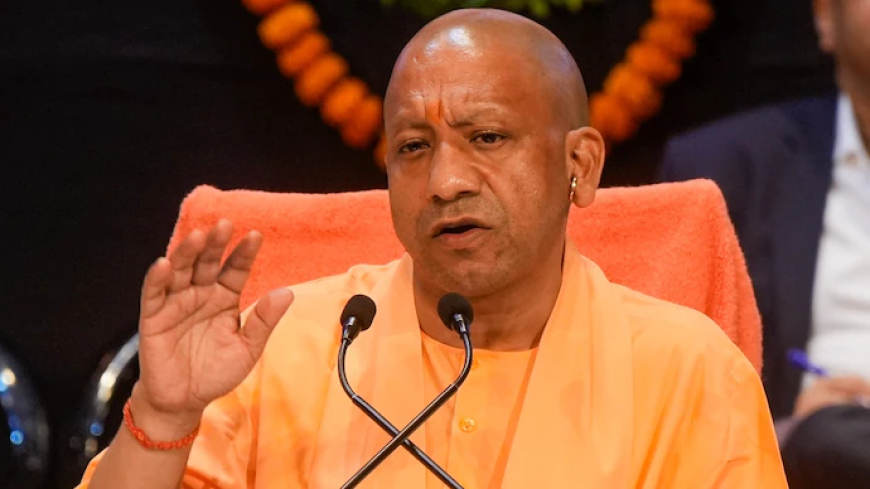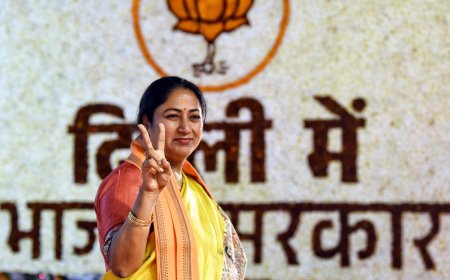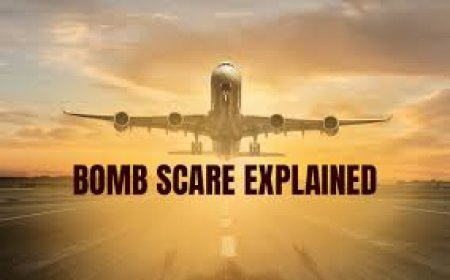Yogi Adityanath on Kunal Kamra Controversy: Considered Free Speech as an Inherent Right
Uttar Pradesh Chief Minister Yogi Adityanath spoke on the controversy surrounding comedian Kunal Kamra, stating that free speech has been treated as an absolute right. His remarks have sparked further debate on the limits of expression in public discourse.

Yogi Adityanath Comments on Kunal Kamra Controversy: Freedom of Speech as a Fundamental Right?
The ongoing discussions about freedom of speech in India have taken center stage once again as Uttar Pradesh Chief Minister Yogi Adityanath weighed in on the controversy involving stand-up comedian Kunal Kamra. Addressing the matter, Yogi Adityanath expressed his views, stating that freedom of speech is often perceived as an unrestricted right by some individuals.
His statement has reignited discussions on the boundaries of free expression, accountability, and the consequences of controversial remarks. Let’s break down the key aspects of this issue and understand the broader implications.
1. What Sparked the Controversy?
-
Kunal Kamra, known for his satirical take on politics and governance, has frequently been at the center of debates regarding free speech.
-
His remarks, often critical of government policies and officials, have attracted both support and backlash from different sections of society.
-
The latest incident led to Yogi Adityanath responding to the broader debate surrounding how free speech is exercised and whether it has limits.
2. Yogi Adityanath’s Perspective on Freedom of Speech
-
The Uttar Pradesh CM remarked that some individuals treat free speech as an absolute privilege, disregarding the responsibility that comes with it.
-
He emphasized that while democratic nations support free expression, it should not be misused to spread misinformation, insult institutions, or create societal disharmony.
-
His views align with those advocating for responsible speech rather than unchecked statements that might trigger controversy.
3. The Debate: Is Free Speech Unlimited?
-
The controversy surrounding Kunal Kamra once again raises the question—should freedom of speech have limits?
-
Supporters argue that a democracy thrives when people can express themselves without fear, including criticism of those in power.
-
Critics believe that speech should have boundaries, especially when it involves sensitive issues that could harm public sentiment or disrupt order.
4. Legal Perspective on Freedom of Expression in India
-
The Indian Constitution guarantees freedom of speech under Article 19(1)(a) but also allows reasonable restrictions in cases involving national security, public order, morality, or defamation.
-
Many cases involving comedians, artists, and activists have highlighted the legal gray areas surrounding speech rights.
-
The judiciary has often been tasked with balancing the right to express freely with the need to maintain public order and harmony.
5. The Role of Satire in Politics and Public Discourse
-
Comedians like Kunal Kamra use satire to critique government policies, which is a long-standing tradition in democratic societies.
-
Satire can be a powerful tool for highlighting issues, but it can also become controversial when it targets individuals or institutions directly.
-
The reception of political humor varies among audiences—some appreciate it as an essential form of dissent, while others see it as disrespectful or inflammatory.
6. Reactions to Yogi Adityanath’s Statement
-
His comments have drawn mixed reactions from political leaders, legal experts, and social commentators.
-
Supporters argue that maintaining decorum in public discourse is essential and that reckless speech can lead to legal consequences.
-
Critics claim that such views can discourage free expression and weaken the right to criticize governance.
7. The Larger Impact on Public Discourse
-
Controversies like these influence the way people engage in discussions, both online and offline.
-
Many social media users have taken sides, either defending Kamra’s right to express his views or supporting calls for accountability in speech.
-
The debate also highlights the growing intersection of politics, law, and digital media in shaping modern discourse.
8. Freedom of Speech vs. Social Responsibility
-
While everyone has a right to express their opinions, the manner in which they do so plays a crucial role in determining public response.
-
Being responsible with words, especially in a politically charged atmosphere, can prevent unnecessary legal and social conflicts.
-
Public figures, including comedians and politicians, hold significant influence, making it important to strike a balance between humor and sensitivity.
9. Has Social Media Changed the Meaning of Free Speech?
-
Platforms like Twitter, Instagram, and YouTube have amplified public expression, making it easier for opinions to reach wider audiences.
-
However, digital expression comes with its own set of challenges, including misinformation, online harassment, and increased scrutiny.
-
The Kunal Kamra episode is a reminder that speech today is more visible than ever, and every statement can have widespread repercussions.
10. What This Controversy Means for Future Discussions on Free Speech
-
The debate surrounding freedom of speech is unlikely to settle anytime soon, as social and political opinions continue to evolve.
-
Cases like this will continue to shape laws, social norms, and the way institutions respond to criticism.
-
Whether through legal measures or public discourse, the balance between free speech and responsibility will remain a key topic of discussion.
Conclusion
The remarks by Yogi Adityanath on the Kunal Kamra controversy bring forth an important conversation about the nature of free speech in India. While the right to express oneself is fundamental in a democracy, it also comes with social and legal considerations.
This ongoing debate will continue to shape the boundaries of expression in the country, influencing comedians, politicians, and citizens alike. As society navigates the complexities of free speech, the key lies in maintaining a balance between open criticism and respectful discourse.
What's Your Reaction?





















































